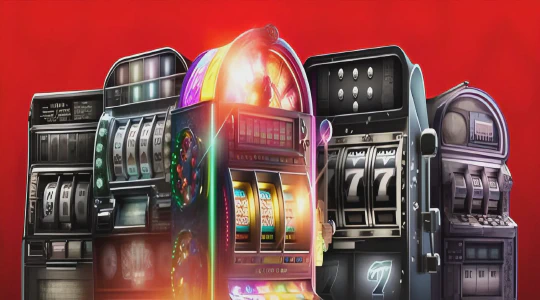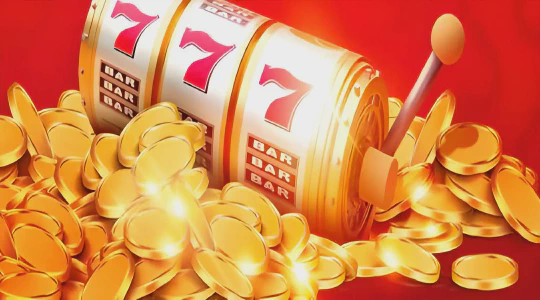Discover the Real Value of Poker Chips: How Much Are They Really Worth?
Poker chips have been a part of the game of poker for over a century. They not only serve as a convenient tool for tracking bets at the table but also as a symbol of prestige and status among players. However, not every poker chip is created equal - some are worth much more than others. In this comprehensive guide, we will explore the factors that determine a chip's value, the different types of chips available, and how to determine the worth of a poker chip collection.
The value of a poker chip depends on several factors, including its rarity, age, and condition. Classic chips from Las Vegas or Atlantic City that have been out of circulation for years can fetch thousands of dollars at collectors' auctions. On the other hand, most modern chips are mass-produced and have a minimal value beyond their usefulness at the poker table.
But how do you know how much your chips are worth? This guide will provide you with the information you need to evaluate and appraise your collection accurately. We will also cover some of the rarest and most valuable poker chips in the world, providing insight into the high-stakes world of poker chip trading and collecting. So, whether you're a seasoned collector or a casual player looking to learn more about the game, this guide will help you understand how much your poker chips are worth.
Understanding Poker Chips
Poker chips are small, round discs used as currency or tokens in the game of poker. They represent a certain value, which is agreed upon by players before the game begins. Poker chips are used to bet on hands during the game, and the winner takes them as part of their winnings Mostbet.
Poker chips are made from a variety of materials, including clay, plastic, and composites. Clay chips are considered the most authentic and are often used in casinos, while plastic chips are more affordable and commonly used for home play or recreational purposes.
Poker chips come in different denominations, ranging from $1 to $10,000 and higher in some cases. The value of each chip is determined by the color and design on the chip, and players must agree on the values before the game starts. Common colors and values include white (worth $1), red (worth $5), blue (worth $10), green (worth $25), black (worth $100), and purple (worth $500).
- Tip: Keep track of the chip denominations during the game to avoid confusion and ensure accurate betting.
Poker chips can be bought individually or in sets, and prices can vary depending on the material, design, and quantity of chips. It's important to choose a set that fits your needs, whether it's for professional play or recreational use.
Overall, understanding poker chips is essential to playing the game of poker. Knowing the different denominations and values of each chip helps players make informed betting decisions and keeps the game fair and organized.
Factors That Impact the Value of Poker Chips
Material Composition
The material of a chip can significantly impact its value. Plastic chips are the cheapest and are usually used for casual play. Clay composite chips are more expensive as they are more durable and have a authentic weight and feel. Ceramic chips are the most expensive due to their intricate designs and textures.Age and Rarity
The age of a chip can impact its value, especially if it's rare or no longer in production. Older chips can be more valuable to collectors and players looking to complete a set. Additionally, limited edition chips that were only produced for a short period can also increase in value over time due to their rarity.Branding
The branding of a chip can also impact its value. Chips from famous casinos can have a higher value, especially if they are no longer in use. Collectors often seek out chips from shows or events to add to their collection, and these chips can be more valuable as well.Overall Condition
The condition of a chip is vital in determining its value. Chips that are worn, damaged, or faded are less valuable than new or well-maintained chips. Collectors and players are willing to pay more for a chip that is in excellent condition as it adds to its value.Rarity of the Denomination
The denomination of a chip can also affect its value. Rare or unusual denominations can be more valuable to collectors and players. For example, chips with higher denominations such as $500 or $1000 are less common and, therefore, more sought after. Similarly, chips with unique denominations like $2.50 or $25,000 can also hold a higher value.Materials Used in Poker Chips
When it comes to poker chips, the materials used can have a significant impact on the value and quality of the chips. The most common materials used in poker chips include clay, composite, ceramic, and plastic.
- Clay chips are considered the traditional and most valuable type of poker chip. They are made using a mixture of clay and other materials and have a smooth surface with a textured edge. They are durable, have a satisfying weight, and are often used in high-stakes games.
- Composite chips are made from a combination of materials, including clay, plastic, and resin. They are less expensive than clay chips but are still high-quality and durable. They typically have a metal insert to add weight and a graphic design on the surface.
- Ceramic chips are made using a high-quality ceramic material and are often used in professional casinos. They are more expensive than composite chips but have a smoother surface and can be customized with intricate designs and graphics.
- Plastic chips are the least expensive option and are often used in home games or for practicing. They are lightweight and come in a variety of colors and designs, but are not as durable as other materials.
| Material | Cost | Durability | Texture |
|---|---|---|---|
| Clay | High | Very durable | Smooth with textured edge |
| Composite | Medium | Highly durable | Smooth with graphic design |
| Ceramic | High | Very durable | Smooth with customizable design |
| Plastic | Low | Less durable | Smooth with a variety of colors and designs |
Ultimately, the choice of material for poker chips comes down to personal preference and budget. Each material has its unique advantages and disadvantages, so it's essential to consider these factors when selecting poker chips for your game.
Types of Poker Chips
Poker chips come in various types, each with a different level of quality and price. The three most common types of poker chips are clay chips, composite chips, and ceramic chips. Clay chips are the most expensive of the three and are considered the standard for high-end casino gaming. They have a unique feel due to the material they are made of and feature intricate designs.
Composite chips are made of a combination of materials, such as clay and plastic. They are more affordable than clay chips but still offer a good quality gaming experience. Composite chips are durable and come in a variety of designs and colors.
Ceramic chips are the newest type of poker chips on the market. They are made of high-quality ceramic material and offer a smooth texture and vibrant colors. Ceramic chips are also durable, but they come with a higher price tag than composite chips.
There are also other types of poker chips available, such as metal chips and plastic chips, but they are less popular and typically used in home games or low-stakes games.
When choosing the type of poker chips to buy, it is essential to consider the purpose of the chips and the budget available. Anyone looking to host a serious poker game should invest in high-quality chips, while those who play casually may be satisfied with lower quality chips. Regardless of the type chosen, poker chips are an essential part of the game, and they can enhance the overall gaming experience.
Rare and Collectible Poker Chips
For some poker players, collecting rare and unique poker chips has become a hobby and even a serious investment opportunity. The value of a poker chip can depend on various factors such as the rarity, age, history, and condition of the chip.
One of the most sought after types of poker chips are those from famous casinos that no longer exist. For example, a set of chips from the Stardust Casino in Las Vegas, which closed in 2006, can fetch a high price among collectors. Chips from casinos that only operated for a short period of time, such as the Dunes Casino, can also be valuable.
In addition to casino chips, there are also limited edition and commemorative chips that have become highly sought after by collectors. These chips are often released in small quantities and feature unique designs, such as those celebrating a special anniversary or event.
The condition of a poker chip can also greatly affect its value. Chips that are used and show signs of wear and tear may be less valuable than those that are in mint condition. It is also important to note that authenticating a rare or collectible poker chip can be a challenge as there are many fakes and replicas on the market.
In conclusion, rare and collectible poker chips can hold significant value and appeal to avid collectors. For those interested in pursuing this hobby, it is important to do thorough research and be knowledgeable about the various factors that can impact a poker chip's worth.
How to Determine the Value of Poker Chips
When it comes to determining the value of poker chips, there are several factors to consider. The first is the material the chip is made from, with ceramic and clay chips being more valuable than plastic ones. Another important factor is the age and rarity of the chip, with vintage and limited edition chips fetching higher prices.
It's also important to consider the denomination of the chip, as higher value chips will naturally be worth more than lower value ones. Additionally, chips from well-known casinos or tournaments may also be more valuable due to their collectibility.
To determine the value of your poker chips, you can consult online marketplaces or auction sites to see what similar chips have sold for. You can also seek out the advice of experienced poker chip collectors or dealers.
Keep in mind that condition also plays a role in the value of poker chips, with chips in excellent condition fetching higher prices than those that are scratched or damaged. Properly storing and handling your chips can help maintain their condition and value over time.
- Consider the material, age, rarity, denomination, and collectibility of the chip
- Consult online marketplaces or seek out advice from collectors and dealers
- Take the condition of the chip into account when determining value
Buying and Selling Poker Chips
Buying Poker Chips
When planning to buy poker chips, you should consider the quality, design, and weight of the chips. High-quality chips made of materials like clay and ceramic can be quite expensive, but they provide a more authentic feel of playing poker. Some chips come with unique designs and logos that can add to the aesthetic appeal of your game.
You can buy poker chips from a variety of sources, including online retailers, local game stores, and even some casinos. Be sure to compare the prices and quality of the chips before making your purchase.
Selling Poker Chips
If you have a set of poker chips that you no longer need, you can sell them to other players or collectors. Before selling, you should determine the value of your chips based on their quality, rarity, and demand.
You can sell your chips on online marketplaces, such as eBay or Craigslist, or to local game stores or collectors. Make sure to take high-quality photos of your chips and provide accurate descriptions to attract potential buyers. Consider offering deals for bulk purchases or including a case or accessories with the chips.
Etiquette of Buying and Selling Poker Chips
- When buying or selling chips, always be honest about the quality, condition, and value of the chips.
- Be respectful and polite in your interactions with potential buyers or sellers.
- If you are selling chips to other players, avoid taking advantage of their lack of knowledge or experience about pricing.
- If you are buying chips, avoid lowballing or trying to negotiate an unfairly low price.
Tips for Investing in Poker Chips
Investing in poker chips can be a fun and profitable endeavor, but it's important to understand the value of the chips and how to choose the right ones. Here are some tips to help you get started:
- Research the market: Before investing in poker chips, it's important to understand the market and the value of different types of chips. Look at websites, forums, and auctions to get an idea of what chips are selling for and what makes them valuable.
- Choose high-quality chips: When investing in poker chips, it's important to choose high-quality chips that are durable and well-made. Look for chips made from materials like clay or ceramic and avoid lower-quality plastic chips.
- Consider the design: The design of a poker chip can also affect its value. Look for chips with unique or interesting designs, especially those related to popular casinos or tournaments.
- Buy from a reputable dealer: When purchasing poker chips, it's important to buy from a reputable dealer with a proven track record of selling high-quality chips. This can help ensure that you're getting a fair price and that the chips are genuine.
- Store the chips properly: Proper storage can help preserve the value of your poker chips. Invest in a quality chip case or display and keep the chips away from direct sunlight and extreme temperatures.
By following these tips, you can make informed decisions when investing in poker chips and increase your chances of building a valuable collection.
The Importance of Condition and Rarity
When it comes to determining the value of poker chips, two important factors to consider are their condition and rarity.
Chips that are in pristine condition, without any scratches or fading, are generally worth more than chips that show signs of wear and tear. Collectors often prefer chips that look as if they have just come out of the factory, and are willing to pay a premium for chips in this condition.
Rarity is another important factor in determining the value of poker chips. The rarer a chip is, the more valuable it tends to be. This is because collectors are always on the lookout for unique and hard-to-find chips to add to their collections.
When evaluating the rarity of a poker chip, factors like the manufacturer, the date it was produced, and the specific design on the chip all come into play. For example, chips made by manufacturers that are no longer in business are often rarer and more valuable than chips made by current manufacturers.
Overall, the condition and rarity of a poker chip are both important factors in determining its value. Collectors who are interested in building a valuable collection should pay close attention to these factors when buying and selling chips.
Famous Collections of Poker Chips
The Archie Karas Collection
Archie Karas is a well-known gambler who became famous for turning $50 into millions of dollars in Las Vegas. He is also known for his massive poker chip collection, which includes chips from almost every casino in the world. The value of his collection is estimated to be worth millions of dollars.
The George Hardie Sr. Collection
George Hardie Sr. is the founder of the Bicycle Club, one of the most famous card rooms in the world. He is also known for his poker chip collection, which features rare and unique chips from around the world. His collection is considered to be one of the most valuable poker chip collections in the world.
The Stephen Wynn Collection
Stephen Wynn is a well-known casino owner who is also a collector of rare and valuable items, including poker chips. His collection includes chips from some of the most famous casinos in the world, such as the Golden Nugget and The Mirage. The value of his collection is estimated to be in the millions of dollars.
The Casino de Monte-Carlo Collection
The Casino de Monte-Carlo is one of the oldest and most famous casinos in the world. It is also home to one of the largest and most valuable poker chip collections in the world. The collection features chips from all over the world, including rare and unique chips that are not found anywhere else.
| Rank | Owner | Estimated Value |
|---|---|---|
| 1 | Archie Karas | $100 million |
| 2 | George Hardie Sr. | $50 million |
| 3 | Stephen Wynn | $25 million |
| 4 | Casino de Monte-Carlo | $20 million |
| 5 | The Venetian Macau | $10 million |
- Other notable poker chip collections include those of Doyle Brunson, Phil Hellmuth, and Johnny Chan.
- Many collectors consider the condition and rarity of the chips when determining their value.
- Poker chips can also have historical significance, as they often reflect the design and culture of the casino or card room where they were used.
The Future of Poker Chip Values
The world of poker chips is constantly evolving, with new designs and materials being introduced each year. This evolution is a clear indication that the value of poker chips is set to increase in the future. As more people get involved in the game and more casinos are built around the world, demand for high-quality poker chips will continue to rise.
Another factor contributing to the rise in poker chip values is their increasing rarity. Many chips are produced in limited quantities or are no longer in production, making them more valuable to collectors. With the rise of online poker, physical chips are becoming less common, making them even more valuable to those who appreciate traditional casino games.
However, it's important to note that not all poker chips will increase in value. Only those made from high-quality materials and with unique designs or historic significance are likely to appreciate over time. So while it may be tempting to invest in a large collection of poker chips, it's important to do your research and choose wisely.
- In summary, the future of poker chip values is looking bright. As the game increases in popularity and traditional casino games remain popular, the demand for high-quality chips will continue to rise. Those with unique designs or historical significance are likely to appreciate in value over time, making them great investments for collectors and enthusiasts alike.
Common Mistakes to Avoid In Poker Chip Valuation
1. Ignoring chip age
One of the most common mistakes made in valuing poker chips is ignoring their age. While a new chip may be worth $1, an older chip of the same denomination could be worth $20 or more. It's important to take into account the age and rarity of the chip when calculating its value.2. Focusing solely on the design
A poker chip's design can be eye-catching and alluring, but it's not always indicative of its value. Don't make the mistake of valuing a chip based solely on its design. Consider the manufacturer, rarity, and age of the chip as well.3. Misidentifying the chip
One mistake that can lead to wildly inaccurate valuations is misidentifying the chip. Make sure you know exactly what you're looking at and correctly identify the manufacturer, series, and denomination of the chip.4. Not factoring in the condition of the chip
The condition of a poker chip can greatly affect its value. Scratches, dents, and discoloration can all lower a chip's value. Conversely, a chip in pristine condition can fetch a higher price.5. Overvaluing uncommon chips
While rare and uncommon chips can be valuable, don't make the mistake of overvaluing them. The rarity of a chip doesn't necessarily translate to its value. Do your research and compare prices to ensure you're getting a fair value for the chip.Conclusion
Avoiding these common mistakes is key to accurately valuing poker chips. Age, design, identification, condition, and rarity all play a role in determining the value of a chip. By taking all of these factors into account, you can assess the true worth of a poker chip.FAQs About Poker Chip Values
What makes a poker chip valuable?
Poker chips can be valuable for a variety of reasons. Some chips are valuable simply because of their rarity or historical significance. Others are more valuable because of the quality of their materials or design. Additionally, chips from certain casinos or tournaments can be particularly sought-after by collectors.
How are poker chips typically valued?
The value of a poker chip is determined by a number of factors, including its rarity, condition, and the demand for it among collectors. Additionally, some chips may be worth more than others because of their weight, materials, or design features.
Do all poker chips have a denomination?
No, not all poker chips have a denomination. In fact, many chips used in cash games have no value printed on them at all, as they are simply used to represent a certain amount of money. However, chips used in tournaments or certain casinos often have denominations printed on them.
Are clay poker chips more valuable than plastic ones?
Not necessarily. While clay chips are often considered to be of higher quality than plastic chips, their value is still dependent on a number of factors. In some cases, a high-quality set of plastic chips could be worth more than a set of clay chips in poor condition.
Can poker chips appreciate in value over time?
Yes, it is possible for poker chips to appreciate in value over time. This is particularly true of chips that are rare or historically significant. Additionally, chips from certain casinos or tournaments may become more valuable as time passes and their historical significance increases.
References
Here are some useful resources for further information on the value of poker chips:
- Poker Chip Forum - an online community of poker chip enthusiasts with discussions on chip values, pricing, and rarity.
- The Chip Board - a forum for collectors and dealers to exchange information on chips, including appraisals and sales.
- Expert Poker Chip Advice - a website offering guides and articles on poker chips, including information on chip grading and valuation.
- Poker Chip Calculator - a tool that calculates the total value of a set of poker chips based on their denominations and quantity.
- Poker Chip Saturation - a blog post that discusses how the availability of poker chips affects their value in the market.
Further Reading
If you're interested in learning more about poker chips and their value, here are a few resources to check out:
- Poker Chip Forum: A community of collectors and enthusiasts who discuss all things related to poker chips.
- Antique Chip Collectors Club: A non-profit organization dedicated to the study and preservation of antique poker chips and gaming tokens.
- The Chip Rack: An authoritative guide to the history and values of casino chips, published annually since 1992.
Reading up on the subject can help you better understand why certain chips are more valuable than others, and what to look for when purchasing your own set.



